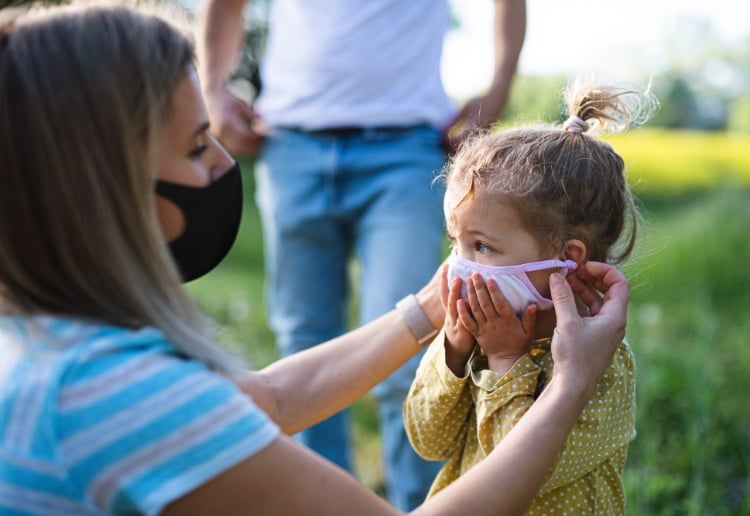With over a billion affected and nearly seven hundred thousand deaths across the world, Covid-19 is a global threat. While face masks aren’t guaranteed to protect you against the virus, it is one of the easiest ways to help prevent the transmission of germs.
The guidelines around wearing masks have changed over the last few months. First, we were told to wear masks, then we were told to not wear masks. But experts have finally decided that face masks are beneficial in stopping the spread and in many places, it is compulsory to wear masks when leaving the house.
Covid-19 is transmitted through direct or indirect touch and droplets suspended in air. Face masks will help prevent the transmission of droplets through sneezing, coughing and even while talking.
But the market is suddenly flooded with all different kinds of face masks and it’s really difficult to decide which ones to buy. Here are a few guidelines to keep in mind:
1. Cloth Face Masks (For General Public):
The most affordable Covid-19 face masks are made of cloth or fabric, such as cotton, flannel, chiffon, silk and synthetic. A combination of different fabrics is more effective but some people find it hard to breathe through many layers.
If you don’t have a proper face mask, you can also use a bandana, scarf or balaclava. Hardware stores have dust masks that look like a respirator, although are not as effective as N95 respirators. The neoprene masks and neck gaiters made of flexible synthetic material are popular too.
The common fabrics recommended for Covid-19 face masks are:
- Two layers of tea towel (not for those with breathing difficulty)
- Mixed cotton (with polyester or rayon)
- Two layers of pure cotton (such as those used in t-shirts)
- Pillowcase with antimicrobial properties
- Linen
As for filtering materials, the following household materials can be useful:
- Any breathable paper material (paper towel, toilet paper, facial tissue, coffee filters etc)
- Shopping bag made of polypropylene as it feels like soft fabric (lasts longer if you air-dry it after each wash)
- HEPA filters inserted between two layers of the Covid-19 face mask (but make sure there is no harmful material like fibreglass)
2. Surgical Masks (Aged Persons, Medical Professionals, Emergency Service Providers)
Commonly seen among medical professionals like doctors and nurses, the surgical masks are blue pleated ones with a white border. These disposable face masks can prevent large droplets emitted from sick people. However, the tiny droplets and Coronavirus can pass through these as the masks do not snugly fit to the face. Medical workers often use the surgical masks over the N95 respirators with their PPE or Personal Protective Equipment.
The materials used in these face masks are non-woven cellulose, polyethylene and polypropylene. Generally, three layers comprising very fine fibres are used in this mask so that not only can they prevent droplets from passing through but also remain breathable.
3. N95 Respirators (Medical and Emergency Workers, Bankers, Law Enforcement Officers)
The most effective is the N95 or FFP2/3 respirator that is proved to filter over 95% of the droplets from the air. The most vital part of using this mask is its fitting because each mask is customised according to the individual’s facial dimensions. These masks are seal-tested and contain tangled fibres that filter pathogens. The edges of these masks are perfectly sealed around the nose and mouth.
Unless there is any engagement with emergency services or crowded places, the most suitable mask for most people is the cloth masks. Kids and seniors may be more comfortable to use surgical masks like emergency workers.
What face masks do you prefer to wear? Tell us in the comments below.





















12:44 pm
8:29 pm
3:08 pm
6:00 am
6:04 pm
4:56 pm
-

-
-
mom93821 replied
- 23 Aug 2020 , 4:31 am
Reply10:14 pm
7:39 pm
1:29 pm
9:21 am
10:00 pm
-

-
-
Ellen replied
- 13 Aug 2020 , 4:38 am

Reply8:50 pm
8:10 pm
10:32 am
7:55 am
11:09 pm
7:25 pm
7:00 pm
-

-
-
Ellen replied
- 13 Aug 2020 , 4:26 am

Reply- 1
- 2
- »
Post a commentTo post a review/comment please join us or login so we can allocate your points.